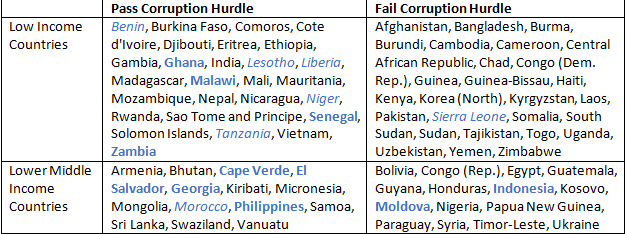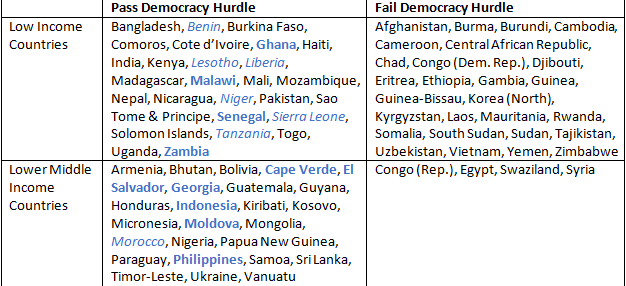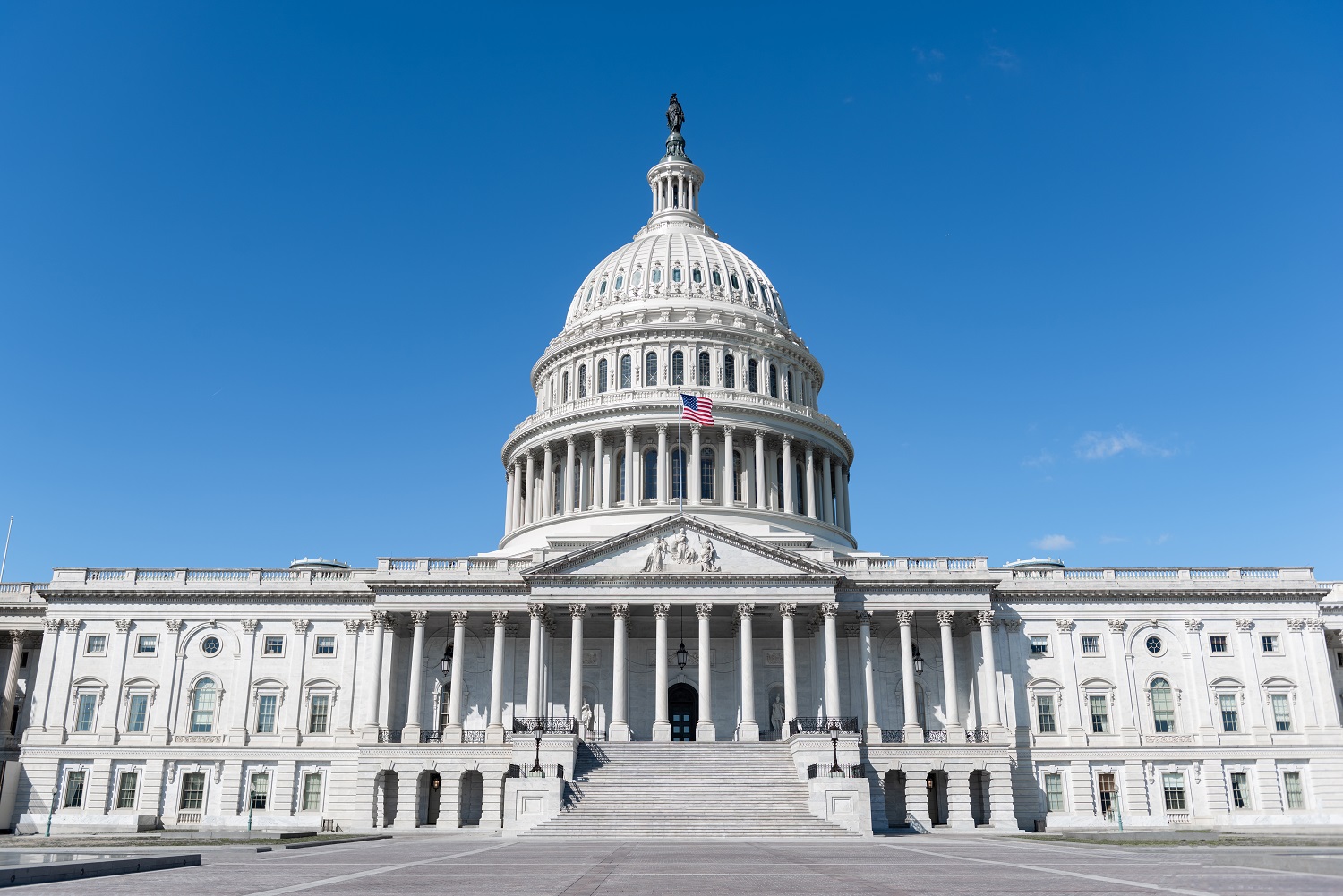In December, MCC’s Board of Directors will meet to determine which countries will be eligible for FY2015 funding. While the agency’s annual country scorecards won’t be ready for a few months, updated corruption and democracy data are available now. These are the big “hard hurdle” indicators that countries must pass to meet MCC’s scorecard criteria for eligibility. An advance look at the data gives some insights into a few big issues that the Board will likely grapple with this year, such as:
- What should MCC do about a country that falls just short on the corruption indicator (again this year), but has been developing a compact proposal?
- Could a country that passes the democracy criteria for the first time be a new contender for compact eligibility?
As a refresher, MCC provides funding only to relatively well-governed countries. To identify those countries, MCC relies heavily on country scorecards that show developing countries’ performance on 20 policy indicators. This is one of the MCC Board’s primary considerations for deciding which countries should be eligible for a compact or threshold program. As part of MCC’s criteria, there are two specific indicators that a country must pass (i.e., hard hurdles). A country must (1) score above the median on the Control of Corruption indicator (compared to its income group peers); and (2) score above a set threshold on at least one of two democracy indicators (either the Political Rights or the Civil Liberties indicator).
So, what jumps out this year? We ran the numbers and found several things that will certainly be key considerations of the Board.
Control of Corruption
First of all, no countries pass the Control of Corruption indicator for the first time. Nonetheless, it’s particularly relevant to consider performance for several groups of countries.
Countries Developing Compacts: It generally takes multiple years to develop an MCC compact, and the agency requires that countries be considered for re-selection each year until a compact is signed.
Last year, the Board made a controversial and unprecedented decision not to reselect two countries, Benin and Sierra Leone, whose Control of Corruption scores had dipped just below passing, even though MCC acknowledged there was no discernible decline in either country’s anti-corruption policy environment. The thing is, the Control of Corruption indicator doesn’t precisely measure small differences between countries or small changes over time (as explained here, here, and here). I have argued extensively that this decision was problematic for MCC (see here and here), making it seem like an unreasonable and unpredictable development partner. Nevertheless, the Board proclaimed they would not sign a compact with either country unless they passed the scorecard. So, how do these two countries fare this year?
Benin passes the corruption hurdle this year. In fact, Benin has passed this indicator for nine of MCC’s 12 selection cycles (see below: green=passed, red=failed). Looking at Benin’s passing record over time really highlights that periodic small dips below the median do not necessarily signify—and should not be interpreted as—alarming trends of deteriorating governance. Benin’s compact was nearly ready to go last year when the Board decided not to reselect it. The question this year is whether the Board will give it the green light to proceed.
On the other hand, Sierra Leone fails the corruption hurdle again. However, as shown below, its absolute score is actually slightly higher than it was last year. And yet again, its score is not statistically lower than it was when Sierra Leone was first selected for compact eligibility in FY2013. The Board will likely spend the next couple of months learning more about the government’s recent efforts to control corruption and discussing how to weigh this kind of qualitative, supplemental information against the stark “fail” determination made with respect to a very fuzzy indicator.

The other five countries that are currently developing compacts—Lesotho, Liberia, Morocco, Niger, and Tanzania—all pass the corruption hurdle.
Second Compact Contenders: As a reminder, MCC may consider for eligibility for a second compact those countries that have completed their first compact or will do so within the next 18 months. Currently, there are 12 countries in this category. All but two of them—Honduras and Moldova—pass the Control of Corruption indicator. What’s especially noteworthy this year is that the Philippines—which will be around 18 months out from completing its compact in December—passes the Control of Corruption indicator for the first time since it moved from the low income country group to the more difficult lower middle income country competition in FY2010. This may be a country to watch for a possible second compact at some point.

Currently implementing a compact
Currently developing a compact
Democracy (Political Rights/Civil Liberties)
First, all existing MCC partner countries pass the democracy hurdle. This is unsurprising since MCC has, throughout its history, almost exclusively selected democratic countries. New this year, however, is that Cote d’Ivoire passes the democracy hurdle for the first time. Since it’s also passed the corruption hurdle for two years in a row, it may pass the overall scorecard requirements for the first time this year making it a country to watch. Of course, a passing scorecard doesn’t necessarily guarantee eligibility. The Board must also consider the current pipeline of countries and weigh the prospects of a possible partnership with Cote d’Ivoire against that of other strong contenders.

Currently implementing a compact
Currently developing a compact
Watch This Space
As always, in early December, the MCC Monitor will provide: (1) deeper analysis of countries’ scorecard performance; (2) a discussion of other big MCC selection issues; and (3) our annual predictions of which countries will be selected at the Board’s mid-December meeting. So please watch this space. It’s going to be an interesting year for country eligibility decisions.
Disclaimer
CGD blog posts reflect the views of the authors, drawing on prior research and experience in their areas of expertise. CGD is a nonpartisan, independent organization and does not take institutional positions.





